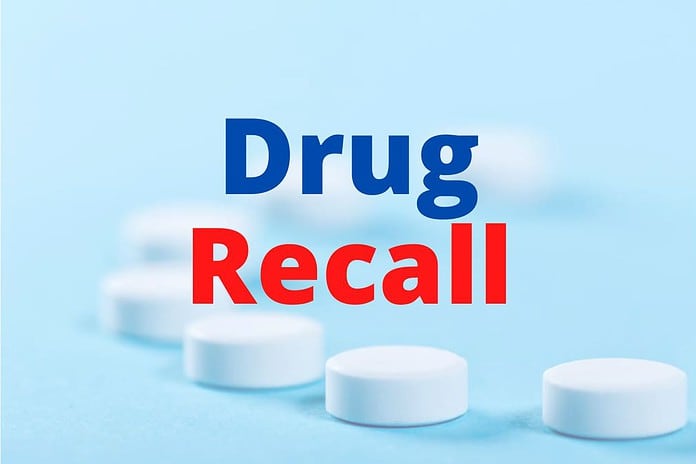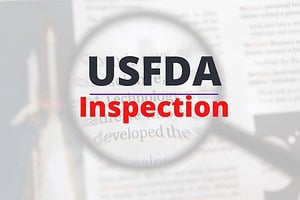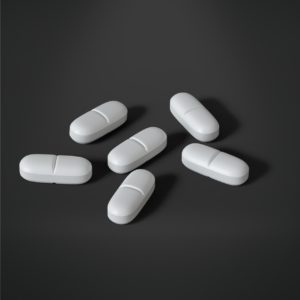Last Updated on October 2, 2024 by The Health Master
Drug recall
Drug recall is a grave concern in the pharmaceutical industry, and the recent actions taken by leading drugmakers Sun Pharma and Lupin in the US have raised eyebrows.
In this article, we will delve into the specifics of these recalls, the reasons behind them, and the potential implications for both companies and patients.
Sun Pharma’s drug recall
Sun Pharmaceutical Industries, a Mumbai-based giant in the pharmaceutical world, has initiated a voluntary nationwide Class II drug recall of 96,192 bottles of Liothyronine Sodium Tablets in the US.
The drug recall, which began on December 4, is attributed to “failed impurities/degradation specifications,” as stated by the US Food and Drug Administration (USFDA).
Princeton-based Sun Pharmaceutical Industries Inc, a unit of the company, is responsible for recalling the affected lot produced at the Dadra-based facility.
This move has sparked concerns and questions regarding the quality control measures in place at Sun Pharma’s manufacturing units.
Lupin’s drug recall
Simultaneously, Lupin, another major player in the pharmaceutical landscape, is facing its own set of challenges.
The USFDA reports an unspecified number of penicillamine tablets being recalled by Lupin Pharmaceuticals Inc, the Baltimore-based unit of the company.
This drug recall, initiated on November 22, is attributed to “failed dissolution specifications.”
The situation prompts us to question the quality assurance processes at Lupin’s Nagpur-based facility and underscores the importance of stringent manufacturing standards in the pharmaceutical sector.
Decoding Class II drug recall
Before delving further into the specifics, let’s understand what a Class II drug recall signifies.
According to the USFDA, a Class II recall is initiated when the use of, or exposure to, a violative product may cause temporary or medically reversible adverse health consequences, with the probability of serious adverse health consequences being remote.
This classification raises concerns about the potential risks associated with the use of the recalled drugs and necessitates a closer examination of the circumstances leading to such recalls.
Why drug recalls?
The reasons cited by Sun Pharma and Lupin for drug recalling their products warrant careful consideration.
Sun Pharma’s mention of “failed impurities/degradation specifications” and Lupin’s reference to “failed dissolution specifications” highlight the meticulous nature of quality control required in pharmaceutical manufacturing.
The implications of these drug recalls go beyond the immediate inconvenience caused to patients.
There are potential health consequences associated with the use of drugs that do not meet the required specifications, emphasizing the critical role pharmaceutical companies play in ensuring the safety of their products.
USFDA’s Oversight
The USFDA’s involvement in monitoring and managing drug recall is crucial for maintaining consumer safety.
Regulatory bodies play a pivotal role in holding pharmaceutical companies accountable for the quality and efficacy of their products.
Understanding the dynamics of this oversight is essential for comprehending the measures in place to safeguard public health.
Impact on the Pharma Industry
The repercussions of such recalls extend beyond the individual companies involved. The pharmaceutical industry operates in an environment where trust and credibility are paramount.
Recalls can significantly impact the reputation of companies, leading to a loss of consumer trust and confidence.
These incidents also draw attention to the broader issue of quality control in pharmaceutical manufacturing, prompting industry stakeholders to reevaluate their processes and invest in robust quality assurance measures.
India’s Stand as the Third-Largest Player
The global pharmaceutical industry is a colossal entity, with India holding the position of the third-largest player by volume.
The scale of this industry amplifies the significance of any recall, as it not only affects individual companies but also has implications for the country’s standing in the global pharmaceutical landscape.
Understanding the global context is crucial for assessing the impact of these recalls on India’s reputation as a pharmaceutical hub.
Maintaining Quality Standards
The recent recalls emphasize the need for stringent quality assurance measures in pharmaceutical manufacturing.
Companies must prioritize maintaining high-quality standards to avoid recalls that can tarnish their image and compromise consumer safety.
This brings to light the importance of investing in cutting-edge technologies, robust testing procedures, and continuous monitoring to ensure that products meet the required specifications.
Learning from Past Recalls
To gain a comprehensive understanding, it’s valuable to compare the recent recalls with other instances in the pharmaceutical market.
Identifying patterns or trends can provide insights into common challenges faced by the industry and help formulate strategies to prevent future recalls.
Examining how other companies have handled similar situations and the subsequent impact on their reputation provides valuable lessons for Sun Pharma and Lupin as they navigate through these challenging times.
Disclaimer: This article contains information derived from the source mentioned below. Our team utilized an AI language model to rewrite and present the news or article in a unique format.
FAQs
- Q: How common are drug recalls in the pharmaceutical industry?
- A: Drug recalls are not uncommon, and their frequency can vary. Stringent quality control measures aim to minimize such incidents.
- Q: What should consumers do if they are using a recalled medication?
- A: Consumers should contact their healthcare provider immediately for guidance on alternative medications and potential health implications.
- Q: How does a drug recall impact the stock value of pharmaceutical companies?
- A: Drug recalls can have a negative impact on stock value, reflecting concerns about potential financial and reputational repercussions.
- Q: Are there global standards for pharmaceutical manufacturing?
- A: Yes, international bodies set standards for pharmaceutical manufacturing to ensure the quality and safety of medications.
- Q: What measures can pharmaceutical companies take to prevent recalls?
- A: Investing in advanced quality control measures, continuous monitoring, and transparent communication are key steps to prevent recalls.
Drug recall: Vigabatrin for Oral Solution recalled – A closer look
Drug recall: Antifungal Spray Powder Due to the Presence of Benzene
Drug recall: Glenmark, Sun recalled these Drugs
Drug recall: Sandimmune Oral Solution Voluntary Recalled: Novartis
Drug recall: Pain & Fever drugs recalled Due to this reason
Drug recall: These drugs recalled due to manufacturing issues
Indian Pharma’s Commitment to Drug Quality, Patient Safety, and Regulatory Compliance
Maharashtra FDA’s Crackdown: Strengthening Pharmaceutical Compliance
DCOIWA successfully organised workshop on Risk Based Inspection: Ahmedabad
USFDA Approval granted for Cyclophosphamide Capsules: Zydus
New Drug Permissions and Launches should be made public
CDSCO approval granted for Inhalation Aerosol: AstraZeneca
FDA Maharashtra to recruit 750 officials soon
USFDA issues Form 483 with 5 observations to Torrent
Pharmacy of the World: Addressing Challenges in Excipient Quality
17 Drugs Control Officers join at FDA Haryana
For informative videos by The Health Master, click on the below YouTube icon:
For informative videos on Medical Store / Pharmacy, click on the below YouTube icon:
For informative videos on the news regarding Pharma / Medical Devices / Cosmetics / Homoeopathy etc., click on the below YouTube icon:
For informative videos on consumer awareness, click on the below YouTube icon:













